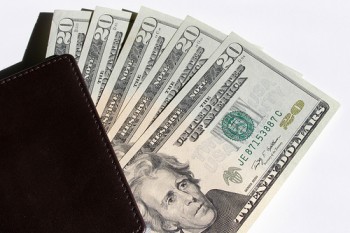Can Chapter 7 bankruptcy help?

I’m not going to attempt a comprehensive overview of the Chapter 7 process, to do so would be better suited for a book than a blog post, however I will lay out 5 important ways that Chapter 7 bankruptcy can help if you find yourself in financial distress.
-
Eliminate unsecured debt.
- This is the most obvious way that chapter 7 bankruptcy helps consumers. Filing for chapter 7 bankruptcy wipes out high interest credit card debt and medical bills. After receiving your bankruptcy discharge, your credit reports should show zero balances for all of your credit card accounts. Although filing for chapter 7 doesn’t look great on a credit score, the discharge does improve your debt to income ratio, and allows you to start rebuilding your credit. Many lenders see the discharge of credit card balances as a sign that consumers are ready to take on new credit.
-
Stop creditor collection actions.
- Although it will not do so permanently, filing for chapter 7 bankruptcy will invoke the protection of the automatic stay, which is a court-ordered injunction preventing creditors from continuing with collection efforts after a bankruptcy case has been filed. When you file for chapter 7 bankruptcy, your creditors are prohibited from contacting you, or attempting to collect debts owed, for any reason. If there is a foreclosure sale of your home scheduled for later in the week it will be temporarily stopped. Collection phone calls and garnishments must end immediately. Even friends you owe money to are prohibited from contacting you while the automatic stay is in place. It is important to reiterate that the protection of the automatic stay is not permanent. In many cases, lenders will make a motion with the court to have the automatic stay lifted so that they can proceed with foreclosure or collection efforts. However, by filing for Chapter 7 bankruptcy, you are guaranteed of at least a temporary cessation of collection efforts by all of your creditors.
-
Help with cars.
- Chapter 7 bankruptcy can help with an underwater automobile in a number of ways. First, debtors have the option of redeeming cars for the current fair market value of the automobile. This is known as a 722 redemption period and is very helpful in cases where a debtor finds themselves severely underwater on an auto loan. For example, if Chris owns a 2005 Honda Accord valued at $3,000 but encumbered by a loan of $12,500, Chris has the option of paying $3,000 to redeem the car from the lender. In this scenario, the loan is extinguished and Chris will own the car out right by paying $3,000.
In cases where the debtor does not have the cash up front to buy out the fair market value of the car, there are lenders that will loan money in 722 redemption scenarios. Conversely, if the Chapter 7 debtor doesn’t want anything to do with an underwater car, they have the option of surrendering it and giving the keys back to the lender with no continuing obligation under the loan. When the car is surrendered in bankruptcy, the lender has no recourse other than to take back the automobile.
-
Help with real estate.
- Even though it has been a number of years since the beginning of the “great recession,” many homeowners are still struggling with underwater real estate and mortgages that they cannot afford. In many cases, consumers are given the runaround by their banks for months before realizing that they are staring foreclosure in the face. Chapter 7 bankruptcy gives property owners the right to surrender their real estate with no continuing obligation to the lender [1]. When you surrender a home in bankruptcy, your lender cannot come after you for a deficiency judgment. Their only recourse is to take back the property and let you walk away. However, homeowners should be advised, although they are surrendering the property in bankruptcy, the lender will still need to foreclose on the property before the chain of title has been broken. Many homeowners are confused to receive HOA bills after they surrendered a home. They don’t realize that it takes a foreclosure sale to take the title out of their name. Until the home has been foreclosed on, the borrower is still the legal owner.
-
A fresh start.
- It’s easy to focus on the legal nuts and bolts of what chapter 7 bankruptcy can and cannot do, however, the most important thing that Chapter 7 bankruptcy does is give consumers the opportunity to start over. Living life hampered by debt is tremendously stressful. Stress related to debt can cause physical symptoms in some debtors, the loss of productivity at work and can create tension within the family. All of those possibilities have long lasting negative consequences. The opportunity to start a new life unhampered by old debts is a very powerful tool that gives momentum to hundreds of thousands of American families each year.
If you’re considering filing for bankruptcy, schedule a consultation with a local attorney. A good bankruptcy firm will always explore non-bankruptcy alternatives and will never pressure you into filing.
Image from Flickr user StockMonkeys.com